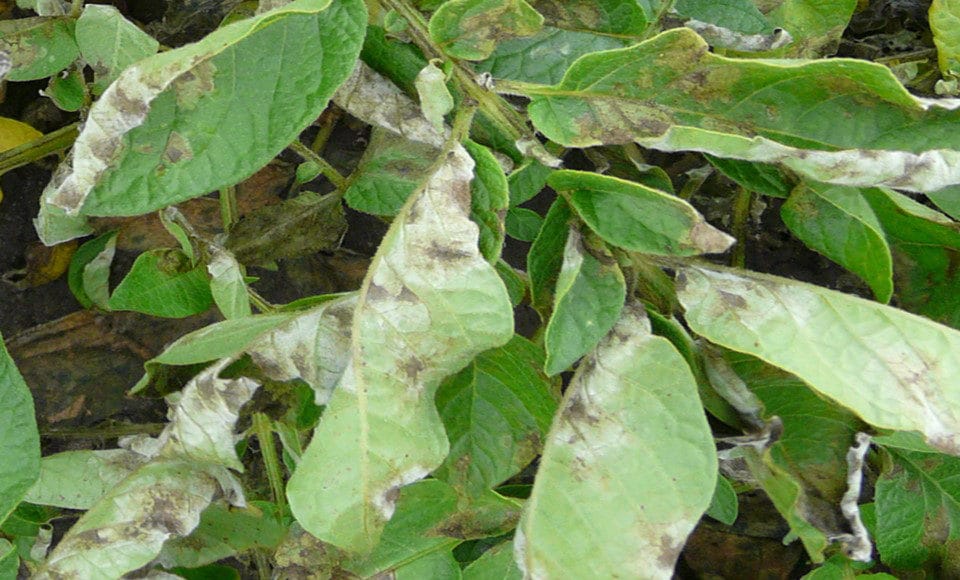A new environmentally friendly method, using spray-induced gene silencing, has been found to control late blight in potatoes, a Feb. 11 news release says.
The method was crafted using double-stranded RNA, that’s known to trigger a process which removes similar molecules from recipient cells. The release says researchers sprayed the double-stranded RNA onto potato leaves infected with Phytophthora infestans and found a clear reduction in late blight — showing spray-induced gene silencing successfully inhibited the development of the disease.
“We showed, for the first time, that spray-induced gene silencing can control late blight,” Ramesh Vetukuri, a plant pathologist at the Swedish University of Agricultural Sciences who was involved with this research, says in the release. “Our study is also the first to indicate that P. infestans sporangia can take up dsRNA from the surroundings and that it efficiently suppresses the expression of target genes.”
Previously, intensive fungicide spraying has been the only effective way to control the pathogen. The new spray-induced gene silencing is more environmentally friendly.
“We anticipate that using spray-induced gene silencing to control diseases will reduce the usage of chemical pesticides. This technology can also be quickly adapted for new targets,” Vetukuri says.
The study was published in Phytopathyology.
Related Articles
Blue Light Found to Reduce Potato Protection Against Late Blight











